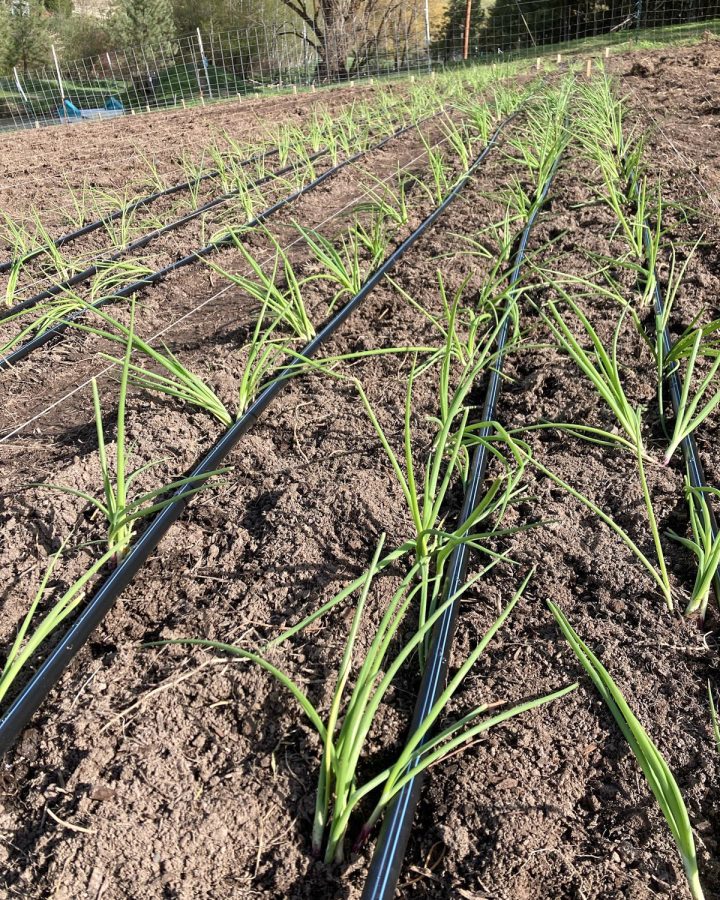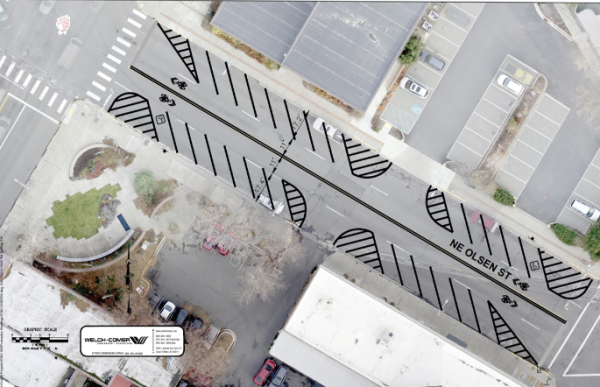Former WSU student achieved goal of running his own local farm
Owners create new vegetable stand outside of farm
Goosehill Farm onioncrops in May of this year
June 17, 2022
Each morning, former WSU student Zach Skirvin walks around Goose Hill Farm in Viola, Idaho, watering crops and pulling weeds before tackling the day.
Skirvin founded the farm only a few months ago, and currently, just him and his fiancée work there. The couple’s interest in farming began a few years earlier, he said.
“We came from a normal suburban area with no real agricultural presence and we just kind of got into gardening and it just kind of took off,” he said.
Skirvin majored in organic and sustainable agriculture for two years before dropping out of WSU and founding Goose Hill Farm.
“At WSU, I worked at the Eggert Family Farm for three years total. That was really beneficial, but I knew from the beginning that the goal was to work on my own farm, something that was small and manageable.” Skirvin said.
Skirvin said some of the reasons he enjoys farm work are that he likes to be his own boss and create his own schedule.
Depending on the time of the year, the daily responsibilities of running the farm can vary greatly, Skirvin said. Additionally, he has a job outside the farm, which poses difficulties with scheduling.
A new venture for Goose Hill Farm is setting up an outdoor farm stand with vegetables on West Cove Road off Highway 95 in hopes of people buying products there for convenience, he said. After they noticed increasing interest from locals online, they began to operate the farm stand more frequently.
“We set it up and it was pretty small and not a lot of people came by. It’s a rural area and not a lot of traffic, about 10 people live on this road,” he said
One of the people who had noticed Goose Hill Farm was local Inga Salsbury, who found it on Instagram after being tagged by a friend on the farm’s page.
“I guess for me, I like being connected to other people who are also somehow involved in food in the community,” Salsbury said. “It’s good to find out about fresh foods and where to buy them from.”
As the farm is a small, local operation, there are no tractors or heavy farm equipment, which possess both pros and cons, Skirvin said.
“Something that’s nice about not using a tractor is you don’t have that loud equipment. There’s nothing that’s that dangerous, [and] I’m not dependent on a very expensive piece of equipment. As long as I have my two hands and two legs, I can go out and work,” he said.
Skirvin said products that are more difficult to dig, like carrots or potatoes, are typically harvested with a tractor.
All crops are going to have different requirements, timing, nutritional needs and infrastructure. There is a lot more to consider when you are growing multiple crops, Skirvin said.
Some of the most difficult aspects of working on a farm that some people might not be aware of are time management and physical demand, he said.
“There’s not a lot of leniency on time, it’s gotta be done now or never,” he said. “Tomatoes are a good example of things that go either not ripe or just right to unsellable pretty quickly, so you have to be really on top of those things and be aware of the timing.”






















